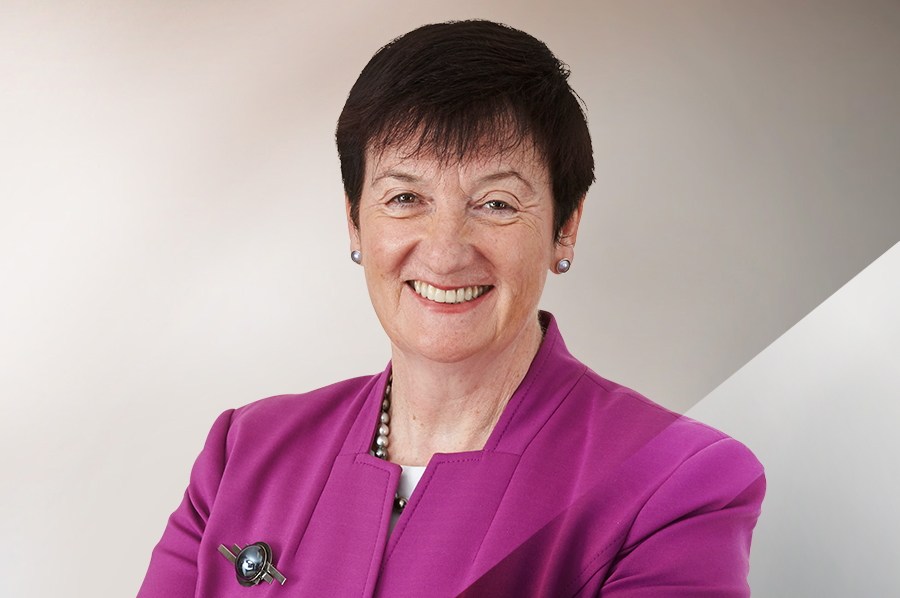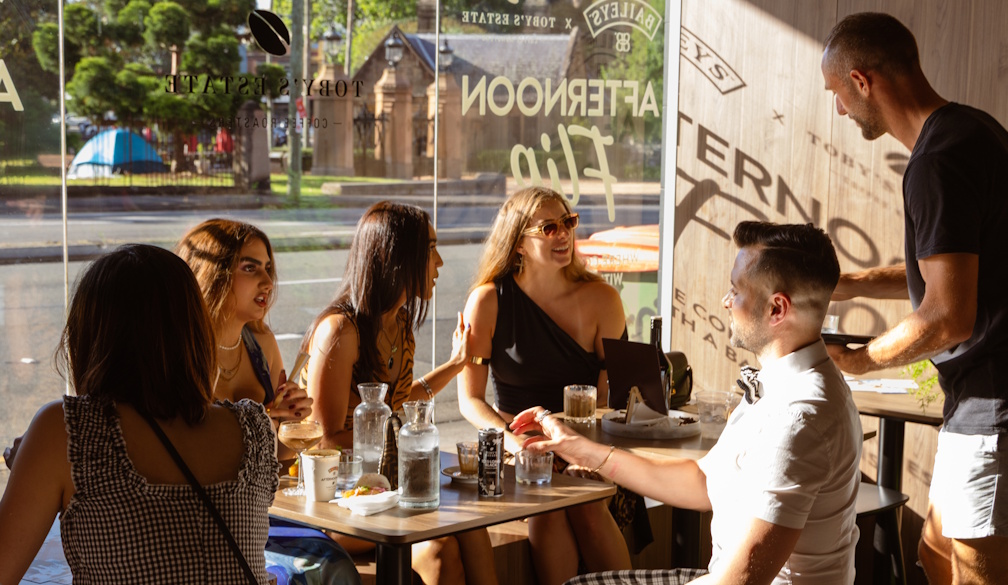Jennifer Westacott interview with David Speers
- Written by Jennifer Westacott

David Speers, host Insiders: Jennifer Westacott, welcome to the program.
Jennifer Westacott, chief executive Business Council of Australia: Thank you very much.
David: Now, it looks like in Victoria, the bulk of restrictions could potentially still be in place for another six weeks. Is that fair enough? Or too long in your view?
Jennifer: Look, I'm really worried about Victoria from what I've read today. Now, we haven't seen all the industry specific information, but if this looks like, to your point, a very long road out. And what does a long road out that's not in sync with what other states are doing, particularly in New South Wales, look like? That means more job losses. More business failures. It means businesses leaving Victoria. It means a sense of hopelessness that I think has crept into Victoria, which I think is bad for people's mental health. What we need is a plan to get business going again. So people with COVIDSafe plans, where there's no transmission, why can't they open? Businesses that were open during the last harsh lockdown, a lockdown that worked David, because we know that 99 per cent of the second wave cases came from breaches of quarantine – mistakes, why can't those businesses, if they've got COVID-safe COVIDSafe plans, no transmissions, be open? If there are regions in Victoria where there haven't been cases, why can't they open? We need a plan that is simple, that is predictable, that does not go backwards. We need a plan that looks at that local hotspot management you've just been talking about, and learns from New South Wales, which is doing this really well. And what's the benefit there? The benefit is 314,000 jobs that were lost in the first wave, are back. And this is not about statistics. This is about people's lives. This is about the businesses they've built all their lives. It's about that sense of hope versus despair, and we need a plan that gives hope today.
David: Okay but the modelling that the Victorian Government is relying on shows very clearly that even 25 cases a day, there's still a great risk of cases taking off, this yo-yo effect. That's not good for anyone's health and wellbeing, let alone for business either?
Jennifer: Of course not. No one wants a third wave here. But I think we have to find a practical, achievable, sustainable plan forward that also allows things to get back. That's my point.
David: But just to be clear on this, are you saying that at 25 cases, say 20-30 cases, we should be able to reopen in Victoria?
Jennifer: What I'm saying is we want to see that modelling today. I mean, you've obviously been talking about it, but what is going to be the threshold? And I go back to my question, things that were not shut in the first stage of what was a very harsh lockdown, that had not had cases, why aren't those things allowed to open? That's my question. Regions that had no cases, why aren't they allowed to open? Bunnings, Target, Kmart, Big W, Officeworks. They see about ten million customers a year. No customer transmissions. Why can't these things start to open? Because the consequences of this, David, are really severe for the national economy, for the Victorian economy, for people’s wellbeing.
David: Sure. And look, I can't talk to the customer transmission point that you make there. But we did get to a point where there were more than 700 cases a day in Victoria, so clearly the movement of people was a problem?
Jennifer: That's absolutely right. But let's work with industry. Let's make sure that where people have got those COVIDSafe plans, that we can open more industries up. That we can get the state going again.
David: How has the consultation been with the Victorian Government in putting together this plan?
Jennifer: Look, there has been consultation, but I don't think that it has been good enough. And I think it's one thing to tell businesses things. It's another thing to work with them to try to make sure that we don't get a third wave and that we keep things going. Let me give you a couple of examples. The big supermarkets. They employ over 100,000 people in Victoria alone. They had to get their workforce reduced by 30 per cent in just a few days. Construction - particularly civil works, where you're talking about hectares, not square metres - shut. You're talking about small business that stocked up their inventory, given 24 hours’ notice to close down. If I contrast that to New South Wales and to the federal government, when this all started, every week, David, the Treasury in the Commonwealth would have all the employee groups on the phone, working through problem by problem - how do we make that work better?
David: And that hasn't happened in Victoria, is what you're saying?
Jennifer: Absolutely not. In New South Wales, every week, every week David, the treasury, the health department, the transport department are sitting down with businesses, "Okay, how do we make that work better?" Not in any way other than to get the better health outcomes.
David: Okay, just to be clear, you're saying that some of the stores you mentioned there, and I should disclose that you're on the board of Wesfarmers as well, but you're saying they need to reopen if they're COVIDSafe, if they have a plan, they should do it today?
Jennifer: Well, I'm asking why not? I'm asking why not. Why not in the first lockdown when they were open, they had COVIDSafe work plans. My question is - why not? And there has to be a plan, and we want to see what this threshold is. But there has to be some certainty David. Because people can't just get on with their lives at the moment.
David: What about state borders? Your budget submission that you've released this weekend, reopening the economy is your number one point. Are you saying state borders should all be reopened now as well?
Jennifer: Well, state borders are meaningless, and they're pointless, and closing them is a job killer. 70 per cent of our economy...
David: Just on that though, to be fair, the Federal Court has found that they are effective in helping to protect the health of people in this virus?
Jennifer: I think the longer this goes on, we'll see. We'll see. Because 70 per cent of our economy is a services economy. Tourism, hospitality, retail. Those things are very dependent on open borders. It would be better to move to the local lockdown approach which is about very severe containment at the local level. But at the very least David, can I just say something else about these borders. At the very least, could we get one permitting system? Could we get one set of rules? I'm hearing story after story after story of people who have got permits who can't get through. Total confusion. People who can't get to their livestock on their farms. People can't get heavy machinery through. At the very least, can we at least get one set of rules about the permitting? That would be a start. And then a gradual, careful, in our budget submission, three-month plan to open the borders carefully and focus on the local lockdowns.
David: Let me turn to a few other elements of your budget submission. You've called for a 20 per cent investment allowance for all business at a cost of $10 billion a year. Just explain to us, could business just claim for investments they would have made anyway? Or would there be a requirement to show this is a new investment that deserves this tax break?
Jennifer: Well, let's go back to just the total point of our budget submission and I'll come back to the investment allowance quickly. Our budget submission is about recognising that we're in the worst position we've been in for 100 years. And there's no guarantee that we'll just easily find our way out of this. Our submission is about creating jobs. Our submission is about setting the country up for the things that have to be done to make us stronger into the future. And that's about obviously opening up the economy, but it is about getting business investing again, to go to your investment allowance question. And business investment has been woeful. It is in freefall. So, an investment allowance, what does it do? It's a 20 per cent bonus deduction. It will make things that don't stack up now, stack up. What does that do? For someone ordering machinery, it creates a work order. That means someone gets starting on something. It means companies start to fast track their online, their digital. That creates work for somebody else.
David: I guess my question was, would it also be going to things that already stacked up? That were going to happen anyway. If Bunnings, for example, were going to refurbish some stores. If they were going to do it anyway. Would they be entitled to the 20 per cent allowance as well?
Jennifer: In our plan, they would. But this is a matter for the government. But you've got to remember this question David, this is the biggest risk, what we don't want is people slowing stuff down either. So we think that it should be broad, it should be simple, it should be available to all parts of the economy. Because if people bring forward the construction of shops, that's thousands of people who get work. People who work in the shop once it's open. You know, if you bring forward your maintenance of your big mining equipment, that creates a whole lot of work orders. And bit by bit, job by job, dollar by dollar, we will start to put this economy back together again.
David: Has the Business Council now given up the idea of a company tax cut?
Jennifer: No. I mean, at some point, some government in the future is going to have to deal with this. One of the highest rates in the world. You see, the French, even the French this week announcing that they were going to lower their business taxes. We've now got a bizarre two-tier tax system. And we are always very clear on this, David, as you and I have talked about many times. We don't want one of lowest rates, we just want a competitive rate. Because here is what companies tell me, they say, "Jennifer, when I go to my global board to get capital, I find it very difficult because I've got one of the highest rates in the world and I've got a whole lot of regulation that I've got to get through." At some point, someone has to get this done. But for now, the job is to get investment going again, because it will be the ticket to creating jobs.
David: You also highlight the problem of energy prices in the submission. You make the point that investors aren't going ahead with projects because, "policy uncertainty is deterring investment." Are you calling for the government to abandon its approach of underwriting hand-picked projects?
Jennifer: Well, we've always been calling for that not to occur, because we think that it squeezes out important investment that the private sector would do. There's a lot of pent-up investment in the energy sector. Investment that would lower prices, and if we don't lower energy prices, how do we get the economy really going again, and projects that are going to reduce our emissions. So let's prioritise investment in those projects that are going to lower prices, in those projects that are going to lower our emissions so we get our energy system set up for the future. And one of those things is not to underwrite projects and compete with the private sector. The other one is to remove all these moratoriums on conventional and unconventional gas that are holding us back in one of the key transmission areas.
David: Just on that, what about underwriting gas infrastructure? Is that something that the taxpayer should do?
Jennifer: Let's have a look at that. Whenever you do something that the private sector would do, that’s something that the government is not going to do. That's a road or a hospital or a school. Be very careful about spending taxpayer money when the private sector would do it.
David: So, you're not convinced that underwriting gas infrastructure is a good idea?
Jennifer: Let's have a look at what the plans are. I know it's been talked about. Here's my fundamental proposition. When governments do things that the private sector would normally do, they discourage private sector investment. More importantly, they divert important taxpayer money away from other vital areas.
David: A couple of quick ones. The JobKeeker wage subsidy. You point out that it is costing a lot of money and we need to transition away from it. Some companies have been putting their hand out for JobKeeper and at the same time, paying healthy dividends to shareholders. How can that justified?
Jennifer: Let's talk about JobKeeper. JobKeeper was a blunt but nation-saving instrument. We believe that the government has to stay the course in phasing it out because it's having a lot of distortionary effects. You hear of restaurants making a 75 per cent increase in profits when they haven't been open, that doesn't make any sense. But let me just make two points about this. Let me go to executive bonuses first. In my view, companies should not be paying executive bonuses if they are receiving JobKeeper. It wasn't designed for that. It was designed to keep people working. Dividends is a more complicated thing. Dividends are usually part of a long-run policy of companies to their shareholders. And let's not forget, who are many of the people who receive dividends? Self-funded retirees, mum and dad investors and of course everybody through superannuation.
David: Sure but it’s being bank rolled by taxpayers here. There's a list of companies that I can give you that have taken JobKeeper and paid the shareholders?
Jennifer: But I was just going to say, if I were those companies, I would exercise some very careful judgement about these. Certainly, on executive bonuses, I think that companies should not do that. I think on dividends, companies need to exercise very careful judgement.
David: Okay, what does that mean? Domino's Pizza for example took $3.2 million in JobKeeper and grew its profit by more than $4 million?
Jennifer: As I said, dividends is a more complicated thing but bonuses I don’t think there’s any question. I would just urge those companies to really think about these decisions, because we have to build community confidence. But it also goes to the point David, we have to wind this thing down according to the government's timetable.
David: A final one on superannuation. If the government does cancel the scheduled increase in the compulsory employer contribution, is there any guarantee wages would rise?
Jennifer: I think that the super thing is just one of these really tough decisions. On the one hand, we want to make sure that we're building a dignified, adequate retirement income system for Australians. On the other hand, at the moment, any pressure you place on wages is pressure you place on jobs. And we've also got this inquiry into the superannuation system. My view is we should wait to see what that inquiry says because if we are going to increase that contribution, we want to make sure that we're putting it into a system that's working, that's functioning, that actually makes sure that people have an adequate, dignified retirement income.
David: Jennifer Westacott, thank you for joining us.
Jennifer: You're very welcome, thank you





















